Posted: February 15th, 2010 | Author: Finn | Filed under: Features | Tags: Appleblim, Interview, Mark Hollis, Rewind, sounds-like-me.com, Talk Talk | No Comments »

In discussion with Appleblim on “Laughing Stock” by Talk Talk (1991).
How and when was your first encounter with Talk Talk?
Well, I grew up with ’Life’s What You Make it’ and ‘It’s my life’ being played on Top Of The Pops and Radio 1 as I was a kid, so those are kind of part of my makeup, you know in that strange way that all the pop music u grew up with is just part of your brain make-up almost, it rubs off on you, and I loved those songs even before I really knew why…
What made you choose “Laughing Stock”? Why is it so important to you?
From there I didn’t really hear of them again until I joined a band in 1994-ish. The two guitarists were big fans of Talk Talk, but the later stuff. I’d not heard it before. They were really big albums with a big circle of friends of theirs, in Plymouth where I had moved to as a teenager. “Spirit Of Eden” came first, then “Laughing Stock”, and I just couldn’t get enough of them. They are completely associated in my mind and memory with some really amazing people and a period in my life that had a big effect on me. Obviously those teenage years are intense and I just remember two albums, along with Bert Bansch ‘It Don’t Bother Be’, Nick Drake ‘Pink Moon’, Pentangle ‘Basket Of Light’, XTC ‘Skylarking’, Autechre ‘Amber’, Orbital green and brown albums, they were what we listened to most, in the bedsits, smoking dope, being skint, on the dole, making music in bands….an intense time, but looking back totally magical. Read the rest of this entry »
Posted: February 8th, 2010 | Author: Finn | Filed under: Features | Tags: Chris Hobson, Interview, mnml ssgs, Pan Sonic, Rewind, sounds-like-me.com | No Comments »

In discussion with Chris Hobson on “Aaltopiiri” by Pan Sonic (2001).
Pan Sonic go quite a long way back in the history of modern electronic music, being formed in 1993. How and when did you first become aware of their music?
I didn’t start listening to electronic music until around about 1997. I was introduced to Pan Sonic in 1999 by one of my best friends. We discovered and taught ourselves electronic music together. He put me onto Pan Sonic and it immediately had a huge impact. It was only in time that I made my way through most of their back catalogue.
Why did you opt for “Aaltopiiri”? Can you describe what makes it so special for you?
I chose ‘Aaltopiiri’ precisely because it was the first Pan Sonic album I bought. I had one or two of their earlier albums on cassette or CD perhaps, but this was my real route in. In terms of music itself, it probably isn’t my favourite release of theirs, but it is the most important for me. This album was central in a kind of sonic renovation my ears and head underwent around 1999 – 2001, the effects of which I can still feel today. What Pan Sonic really taught me is what techno could be. It broadened my mental horizons in quite radical ways. Beyond ‘Aaltopiiri’ being a key moment for me in this regard, what I like about it is that personally it has the right balance of Pan Sonic’s noisier side and its more bleepy and drone sounds. Some of their later stuff has been a bit too noisy for me, here there is a pretty good weighting between the two. Read the rest of this entry »
Posted: February 1st, 2010 | Author: Finn | Filed under: Artikel | Tags: Interview, Kyuss, Paul Frick, Rewind, sounds-like-me.com | No Comments »
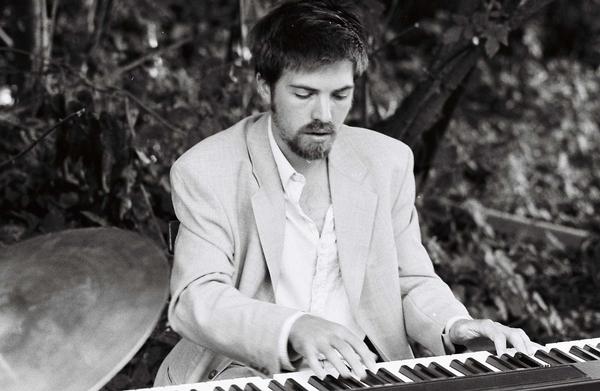
Im Gespräch mit Paul Frick über “…And The Circus Leaves Town” von Kyuss (1995).
Kannst du Dich noch daran erinnern, wie Du auf Kyuss gestoßen bist? Ist diese Musik eine lange Liebe von Dir?
Ich weiß noch, dass ich bei “City Music” am Ku-Damm im Metal Hammer geblättert hab, und dass das Vorgänger-Album “Sky Valley” dort Platte des Monats war. Das war 1994, mit 14 oder 15. Im Review stand, glaube ich, etwas von einer “Metal-Variante von Pink Floyd”… Das hat mich dann wohl geködert. Ich hab es mir angehört und war sofort von dem warmen, bassigen Sound eingenommen, und von dem unterschwelligen Blues. Sowohl “Sky Valley” als auch “…And The Circus Leaves Town” waren dann eine Zeit lang der Soundtrack meines Teenager-Lebens… Ich habe damals auch einige ihrer Songs und Riffs auf der E-Gitarre nachgespielt.
Warum hast Du Dir ausgerechnet “… And The Circus Leaves Town” ausgesucht? Was macht es zu DER Platte für dich?
Ich würde zwar nicht sagen, dass es DIE eine Platte ist, aber von meinen diversen All-Time-Favourites ist “…And The Circus Leaves Town” eine der wenigen, die ich immer ähnlich stark gespürt habe, die für mich auch eine Art innere Konstante über 15 Jahre hinweg darstellt, während sich mein Geschmack und meine Art Musik wahrzunehmen des öfteren stark geändert haben.
Den persönlich nostalgischen Faktor mal beiseite genommen, würde ich hervorheben: Den unglaublich organischen Sound. Die tiefen Bass-/Gitarrenflächen klingen so körnig und lebendig, und bei aller Verzerrung überhaupt nicht “hart”. Wie ein in den Tiefen kondensierter Blues. Josh Hommes Gitarrenspiel wirkt nie technisch oder virtuos, sondern hat bei allen Psychedelic-Anleihen immer etwas Reduziertes. Er und auch der Basser Scott Reeder bringen sehr intensive Stimmungen mit nur wenigen Tönen hervor, sind Meister der Andeutung. Alfredo Hernandez’ Schlagzeug ist wunderbar warm gespielt und aufgenommen, Lichtjahre von mechanischen Metal-Drums entfernt. Die fast ständig durchzischelnde, dreckige Cymbal-”Fläche” ist sehr charakteristisch für Kyuss und frequenztechnisch quasi die Ergänzung der tiefen Gitarren. John Garcias tolle Stimme ist grandios leise gemischt, manchmal eher eine Art sehnsuchtsvolle Andeutung in der Ferne… Man höre “El Rodeo”!
Der eigene Kyuss-Klang kommt auch besonders durch die Repetitivität der Stücke zur Geltung. Vielleicht ist diese Vertiefung in den Klang andersherum auch eine Konsequenz dieser Repetitivität. Eins ist hier jedenfalls ohne das andere nicht denkbar. Da wären wir eigentlich auch schon beim Thema Club-Musik…
Die Stärke dieser Musik liegt für mich im Zusammenspiel. Es können keine Songs sein, die einer schreibt und als Mastermind umsetzt. Es sind Kondensate aus langen Jams, aus einer gemeinsamen Stimmung im Raum (oder natürlich – wie die Kyuss-Legendenschreibung sagt – in der Wüste…) Für mich war und ist diese hypnotische Melancholie unwiderstehlich. Kyuss’ Musik ist extrem energetisch, ohne sich punktuell und forciert aufzudrängen. Read the rest of this entry »
Posted: January 25th, 2010 | Author: Finn | Filed under: Artikel | Tags: Interview, Justus Köhncke, Rewind, sounds-like-me.com, The B-52's | No Comments »
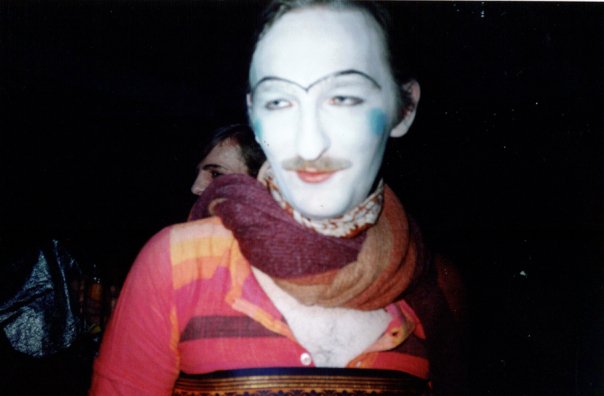
Im Gespräch mit Justus Köhncke über “Play Loud” von den B-52’s (1979).
Kannst Du Dich noch daran erinnern wie und wann Du auf die B-52’s gestoßen bist? War die Band eine prägende Jugendliebe von Dir?
Absolut. Anfang 1980, als ich 13 war, kam meine 2 Jahre ältere Patchworkfamilienschwester Corinna von einem zweijährigen Intermezzo bei ihrem leiblichen Vater in Berlin zurück in unseren mittelhessischen Provinzschoß der Patchworkfamilie (die derzeit ja noch lange nicht so hieß) – nicht ohne die heiße Ware ihrer Mauerstadt-Teenieclique: Ian Dury, The Specials, The Police (tja, auch) und: The B-52’s „Play Loud“. Ich war gerade dem Hitparadeausdemradioaufcassettemitschneiden hin zum Cooleleutehörenjaalbenvontollenkünstlern entwachsen, da kamen mir diese Empfehlungen gerade recht. Tatsächlich kann ich noch heute viel für die erste Specials, „New Boots And Panties“ von Ian Dury & The Blockheads und unser Thema, „Play Loud“, tun. Corinna liebe ich nach wie vor heiß und innig, sie ist Wissenschaftlerin des psychologischen Fachs in Heidelberg, und findet poptechnisch nurmehr Abba, die Carpenters und Anett Louisian gut, von der sie meint, ich müsste die doch auch toll finden, wegen der einfühlsamen deutschen Texte, woran ich mich ja auch versucht hätte. Aber das nur am Rande.
Warum hast Du Dir ihr Debüt „Play Loud“ ausgesucht? Was macht das Album so wichtig für dich?
Wichtig ist natürlich, siehe oben, die (pop-)frühkindliche Prägung mit 13, aber andererseits nenne ich hier ja nun auch nicht „Regatta De Blanc“ (von Police, aus derselben Tranche). Denn „Play Loud“ ist für mich über die Jahre einfach nur gewachsen als besonderes Gewächs, das sie ist, diese Platte – später mehr dazu. Read the rest of this entry »
Posted: January 18th, 2010 | Author: Finn | Filed under: Artikel | Tags: Interview, John McLaughlin, Rewind, sounds-like-me.com, Stefan Goldmann | No Comments »

Im Gespräch mit Stefan Goldmann über “Devotion” von John McLaughlin (1972).
Was ist Deine persönliche Verbindung zu John McLaughlin? Wie und wann bist Du auf ihn gestoßen?
Als ich 14-15 war und meine Ferien wie immer in Sofia verbrachte, war plötzlich Jazz das ganz große Thema bei meinen Freunden dort. Die anderen waren 2-4 Jahre älter als ich und ich ließ mich gerne beeinflussen. Als ich z. B. 9 war, kam ich so zu Iron Maiden, dann zu Led Zeppelin und Pink Floyd, und schließlich kam ich eines Sommers wieder und die waren alle ganz versessen auf das, was sie für Jazz hielten. Also Hauptsache virtuos – da wurde dann John Coltrane genau so gehört wie Al Di Meola oder die Chick Corea Elektric Band. Der Name McLaughlin fiel da auch schnell. Zurück in Berlin ging ich also zum Virgin Megastore und schaute mir die Kassetten an. Das war das Format, das mich interessierte, weil ich keinen eigenen Plattenspieler hatte, dafür aber einen Ghettoblaster und einen Walkman. Im Laden hatten sie die “Devotion” sowie die “Love Devotion Surrender” mit Carlos Santana. Sonst nichts. Als angehender Jazz-Snob hab ich natürlich die „Devotion“ mitgenommen und mich nicht mit irgendwelchen Rockern aufgehalten. Interessanterweise war dieses Tape die Lizenzausgabe von Celluloid, was später eines der wichtigsten Labels für mich werden sollte. Es hatte dieses super Coverdesign von Thi-Linh Le, der die ganzen legendären Celluloid-Cover in den 80ern gemacht hat. Ich kam hier also gleich mit zwei sehr wesentlichen Dingen in Berührung. Als ich damals auf einer Skifahrt in Tschechien war, konnte ich damit ganz gut die Mädchen beeindrucken, weil das selbst für die offenkundig so viel besser war als der Spaß-Punk, den die anderen Jungs dabei hatten.
McLaughlin war ja an sehr vielen bedeutenden Alben beteiligt. Warum hast Du Dir “Devotion” ausgesucht?
Gut, allein die ganzen Miles Davis Platten, auf denen er mitspielt sind eh der Wahnsinn. „Bitches Brew“ ist für mich sicherlich das bedeutendste Album überhaupt. Nur ist “Devotion” für mich einerseits der Einstieg gewesen, anderseits ist es in mehreren anderen Aspekten wirklich bemerkenswert: Es ist ein Album, das jemand in ein bestehendes Genre hineingesetzt hat – und dieses völlig übertroffen hat. Das ist ein wichtiger Beleg, das so etwas möglich ist. Es gibt immer diesen riesigen Vorteil, der Erste zu sein, der etwas Bestimmtes macht. Also ich denke da an Jeff Mills oder Plastikman, die einfach als erste wahrnehmbar ein kompositorisches Niveau erreicht haben in einer Musik, die vorher eher nur raue Energie war. Solche Leute haben auf Jahrzehnte einen Vorteil gegenüber jedem, der erst später dazukommt. Es ist ein zentrales künstlerisches Problem, wenn man innerhalb irgendeiner bestehenden Kunstform arbeiten will: was kann ich eigentlich noch beitragen? Die Möglichkeiten sind halt entweder den Rahmen zu dehnen oder es einfach deutlich besser zu machen als alle Anderen. Und Letzteres hat McLaughlin mit “Devotion” einfach gemacht. Da kommt einer aus England nach New York und nimmt den kompletten Laden auseinander. Die “Devotion” ist der klanggewordene feuchte Traum jedes Hendrix-Fans, nur das Hendrix das nie hingekriegt hat. Auch nicht mit “Band Of Gypsies”. Da kulminiert Etwas, was die ganze Zeit als Erwartung in der Luft lag, nur von Niemandem vorher eingelöst werden konnte. Dieses Energieniveau war einfach damals unbekannt. Und sehr viele spätere Sachen fußen darauf – sowie auf Lifetime, der Tony Williams Band mit McLaughlin und Larry Young. Read the rest of this entry »
Posted: January 11th, 2010 | Author: Finn | Filed under: Features | Tags: Interview, Martyn, Rewind, sounds-like-me.com, Talking Heads | No Comments »

In discussion with Martyn on “Fear Of Music” by The Talking Heads (1979).
What got you into the Talking Heads? Can you remember the time and circumstances you first became aware of the band?
My father was an avid vinyl collector, he was a football player and played in the UEFA cup tournaments at the end of the 70’s and early 80’s. Wherever he played he managed to find a record store and buy new music. I’m not sure where he picked up “Fear Of Music” but I’m quite sure he bought the record when it was released (in 1979). In 1984, when I was 10 years old, my dad bought “Stop Making Sense” and I remember both that album as well as “Fear Of Music” being played at the house many many times. “Stop Making Sense”, a live album, came with a booklet with pictures from the live show, so I browsed through it whenever the album was played. I loved the “Fear of Music” sleeve as well, as it has an embossed pattern, it was the only record I had seen at that time which had that.
Why did you opt for “Fear Of Music” over other of their albums? What makes it so special for you?
Musically, I remember liking “Stop Making Sense” better at that time, it features a lot of the big Talking Heads tracks like “Psycho Killer”, “Burning Down The House” and “Once In A Lifetime”, and although I knew “Fear of Music” practically by head, I revisited it many years later and came to appreciate it more. My dad didn’t own the other Talking Heads albums, but he did have Tom Tom Club’s first album.
I started buying vinyl around 1982, with my first allowance money. It started with pop music obviously, and my own collection started to grow and grow. Later, when I got into late 80’s / early 90’s hip hop, I started digging in my dad’s soul and funk records (as hip hop used many of those to sample from). I left all the new wave and 70s/80s pop for what it was at that time, but about 5 years ago I went back in big time, to Roxy Music, David Bowie, ABC, Human League, Ultravox, and some of the New York bands like Talking Heads. I was moving houses a lot and dragged my vinyl collection everywhere, for some reason I felt that some of my dad’s records needed to be in the collection just to carry a part of my “home” with me. Even now that I’ve moved to the US, I had some of my favourite records shipped over and some of those have indeed been “in the family” for 30+ years, including “Fear Of Music”. Read the rest of this entry »
Posted: January 4th, 2010 | Author: Finn | Filed under: Features | Tags: Interview, Rewind, sounds-like-me.com, The Doors, Todd Burns | No Comments »
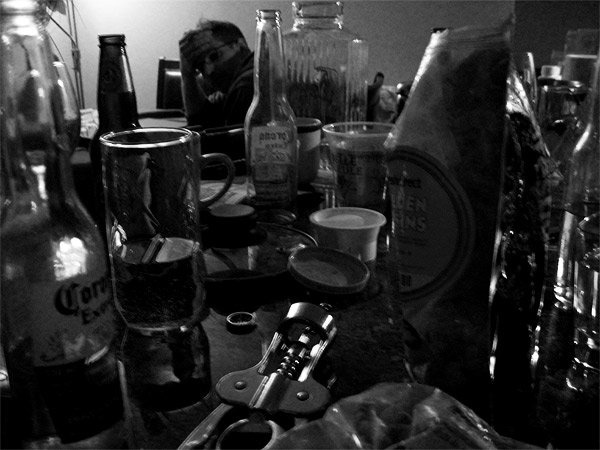
In discussion with Todd Burns on “Celebration Of The Lizard” by The Doors (1968).
This song has quite a special status in the Doors back catalogue, could you elaborate on why you choose this over other of their songs?
“Celebration Of The Lizard” does have a special status in the Doors back catalogue, largely because it was never released. The group ended their first two albums with very long, epic songs—“The End” and “When The Music’s Over”—and, as I understand it, this was supposed to be the song that concluded their third full-length. Unfortunately, for one reason or another, the group couldn’t get a take that they were happy with and had to substitute a few other tunes instead to fill out the record. As someone who is rather fascinated by the history of music, I’ve always been fascinated by failures and coulda-beens. “Death Of A Ladies Man” is my favorite Cohen album, I collected bootlegs of The Beach Boys’ “Smile” sessions but never listened to the one that Brian Wilson eventually released a few years ago. This song from The Doors is in that same vein.
There is plenty to choose from as far as rock history’s classic groups are concerned. What makes The Doors appealing to you?
I have a dark poetic past. And Jim Morrison’s poetry always appealed to a teenager that was prone to such flights of fancy. People often laugh at Morrison’s writing today, but I’d argue that he’s a much more interesting figure than what we have nowadays in popular rock music. Then again, I have my doubts that a group like The Doors would be on a label much bigger than something like Sub Pop in 2009. Also appealing to me was the music. It’s hard to overstate how strange and wonderful some of The Doors music sounded when placed alongside their contemporaries. Organ player, flamenco guitarist and jazz drummer and American Poet over top of all of it? And they even wrote some pop songs along the way? Yes, please. Read the rest of this entry »
Posted: December 28th, 2009 | Author: Finn | Filed under: Features | Tags: iamelectron, Interview, Primal Scream, Rewind, sounds-like-me.com | No Comments »

In discussion with iamelectron on “Don’t Fight It, Feel It” by Primal Scream (1991).
This single is an outtake of Primal Scream’s seminal “Screamadelica” album. What is so important to you about this track that you chose to discuss it, and not the whole album?
The album as a whole is an amazing creation (excuse the pun) but it’s “Don’t Fight It, Feel It” that means the most to me. Every time I hear it I’m back in 1991 and it still gets the hairs standing up. It’s one of those songs that I’ll never be able to disassociate from the state, time or place I was in when I heard it.
How do you have 1991 in mind, especially compared to the years shortly before and after? What made that year special?
The summer of 1991 was a major point in my life. It was when I decided to pack in Art College and give the DJ game a serious go. I’ve been around electronic dance music in one form or another for quite a while. I was, and still am a huge fan of New Order, and some friends and I started a Joy Division/New Order cover band at school called Funeral in Berlin. I had the bass and the pony tail so I was Hooky, haha! Then I got involved in a Goth Disco band. Don’t laugh! We covered Dead or Alive, Sylvester, The Fine Young Cannibals and our Hi-Nrg version of “Jolene” was legendary (to about five people). So I was really into the sound of drum machines and synths. But it wasn’t until I went to Edinburgh Art College in ’89 that house and techno really hit me. I stayed in halls of residence for my first year. In the room around the corner from me was this guy from Aberdeen and he was always with this girl from college that I had the major hots for but was too shy to approach. So one day I went up and introduced myself to him in the hope that he’d introduce me to said lovely lady. I never got the girl, but I did get introduced to Acid House. My new friend lent me copies of “The House Sound of Chicago” and the first Jackmaster compilation, and I was blown away by the rawness of it.
So I started hunting down more records. I’d done a few bits of DJ’ing before, playing at indie disco things with a few electronic tracks thrown in; Factory releases, Tackhead, Nitzer Ebb, early Ministry/Revolting Cocks, The Residents that sort of stuff – and now I was sticking in these new House tracks, completely unmixed I must add because I had no concept of how to put two records together at that point. I started to meet more people at college who were into the House scene and we’d head down to nights like UFO; a short lived weekly party in Edinburgh that Optimo’s JD Twitch ran before he created the infamous PURE night (with his DJ partner Brainstorm).
Then in 1990 Glasgow became the European City of Culture and with that came late licensing laws and Atlantis at the Sub Club (with residents Harri and Slam) so we’d head over there and got to catch the first touring DJ’s like the Boys Own and Flying gangs. Then a friend and I started driving down from Scotland to London to go to clubs there. I was being consumed by House! By now I’d completely lost interest in actually getting a degree and to my parent’s dismay I moved back home (home being St Andrews, a very small, very insular University town on the East Coast of Scotland) to ‘take a year out’. I’d unintentionally timed my move with the opening of a night in the nearby city of Dundee called the Rumba Club, and from the spring of 1991 to Christmas of that year it was absolute chaos! During those eight months Weatherall played three times – and on his second visit he dropped “Don’t Fight It, Feel It” as his very last song. I had never heard a reaction to a record like the one he received that night – and I don’t think I’ve heard a reaction like it since. When the whistle noise, stuttering percussion and that wobbly bass line started the place erupted – it was madness!!! I’d love to hear a recording of his set because I’m sure he was mixing both sides; starting with the A side and then moving onto the “Scat Mix”. When that deep, deep, bass noise he briefly uses in the track came on the place went up another gear. So I’m on a packed dance floor going nuts to “Don’t Fight It Feel It”, surrounded by all my friends who are going nuts and whack – epiphany time! Sod college, sod everything else…I want to do what he (Weatherall) is doing! So I left the club that night…“and he was never the same again”. Yip, 1991 and this track will always be really important to me. Read the rest of this entry »
Posted: December 21st, 2009 | Author: Finn | Filed under: Artikel | Tags: Ingo Scheel, Interview, Rewind, sounds-like-me.com, The Sex Pistols | No Comments »
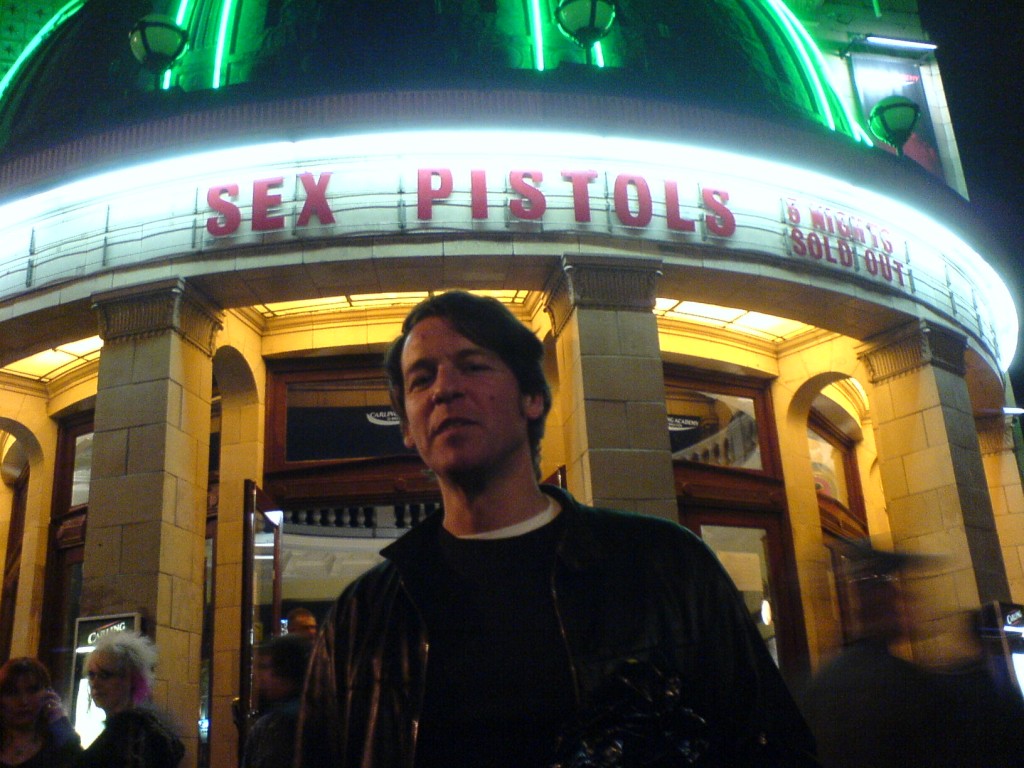
Im Gespräch mit Ingo Scheel über “Never Mind The Bollocks Here’s The Sex Pistols” von den Sex Pistols (1977).
Wann und wie war Deine erste Begegnung mit “Never Mind The Bollocks”?
Das war irgendwann im Herbst 1977, ich war 13. Mein bester Kumpel Assi und ich hatten von den Pistols gelesen, von Punk als Phänomen, das fanden wir alles super, aber es gab nirgendwo etwas zu hören. Bis dann Wolf-Dieter Stubel in der “Internationalen Hitparade” auf NDR2 “Holidays in the Sun” spielte. Ich weiß es noch genau, es war im Autoradio, mit meiner Mutter zusammen. Der Song beginnt, das Intro, Rottens Stimme, ich hätte ausrasten können. Die Welt sah sofort anders aus, der Song legte binnen Sekunden einen Schalter in meinem Leben um. Wieder zuhause angekommen rief ich Assi an, er hatte den Song auch gehört und wir konnten nicht fassen, wie gut die Pistols klingen. Zwei Monate nach dieser ersten Begegnung bekomme ich die Platte von Tante Renate zu Weihnachten. Es ist Bescherung, ich packe sie aus. Meine Tante sagt: “Na, nun möchte ich die aber auch mal hören.” Wir gehen in mein grün-weißes Jugendzimmer, ich werfe den orangefarbenen “Wifona Hitmaster” an (kein Scheiß), mach die Platte an. Während ich selbst die ganzen Songs zum ersten Mal und beinah implodiere, sitzt Tantchen auf der Bettkante, zieht an ihrer “Kim” (viel zu zart für Männerhände) und sagt: ” Das klingt ja alles gleich”. Ich sah das natürlich anders. Tantchen ließ mich dann zur Versöhnung an ihrer Zigarette ziehen und wir gingen wieder ins Wohnzimmer zurück. Später hab ich die Platte im Dunkeln noch mehrmals gehört und war zu aufgeregt, um einzuschlafen.
Wie würdest Du das Album beschreiben? Was macht es zu DEM Album für Dich?
Für mich ist es DIE eine Platte, die immer da war. Schlicht und ergreifend. Die Teenager-Jahre sind so prägend, wenn dir in dieser Zeit ein Album auf diese Weise den Kopf abschraubt – das wirst du nie wieder los. Stress in der Schule, nervende Eltern, Pickel, Mädels, der ganze Irrsinn, da waren die Sex Pistols ein erstklassiger Fixpunkt, mein klanggewordener, ausgestreckter Mittelfinger. Der britische Fußballer Stuart Pearce hat einmal gesagt, er hätte „Never Mind The Bollocks“ so oft gehört, es ist mittlerweile in seinen Genen. Das ist natürlich herrlicher Quatsch, aber ich für meinen Teil empfinde genauso. Read the rest of this entry »
Posted: December 14th, 2009 | Author: Finn | Filed under: Features | Tags: Greg Wilson, Interview, Rewind, sounds-like-me.com, The Temptations | No Comments »
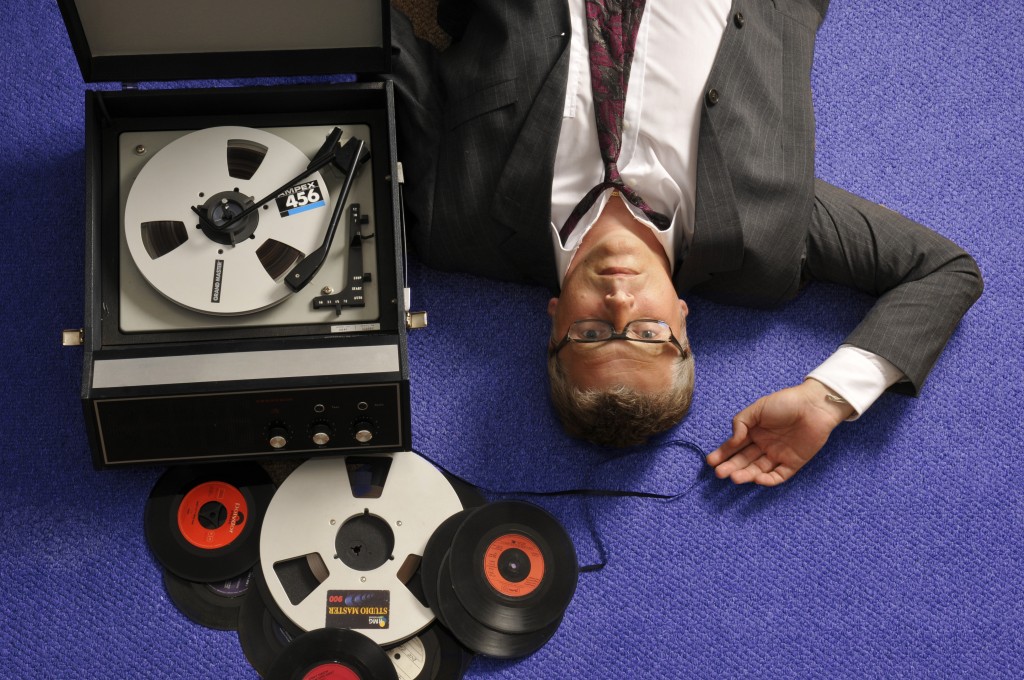
In discussion with Greg Wilson on “Ball Of Confusion (That’s What The World Is Today)” by The Temptations (1970).
What is your personal history with this particular song and why did you choose it?
I suppose if I was put on the spot and asked to name my favourite all-time singles, this would be one of those that would immediately spring to mind.
My older brother and sister, like many teenagers growing up in the 60’s, regularly bought singles (7″ only in those days of course). They were both into Soul, with Tamla Motown, Stax and Atlantic releases making up the majority of what they owned. These singles gradually fell into my possession and became the foundation of my record collection.
This was one of those records, and the moment I heard it I was awestruck! From the count-in at the start, which I now know was the producer, Norman Whitfield, and the bass line intro, which I now know was a Funk Brother, Bob Babbit, it’s clear that you’re boarding an aural rollercoaster. And then the vocals come in, and what an opening salvo:
“People moving out, people moving in,
Why? Because of the color of their skin,
Run, run, run, but you sure can’t hide…”
We’ve barely started, yet the picture already painted leaves you in no doubt that we’re dealing in harsh realities here. The track is a snapshot of a point in time – with the 60’s moving into the 70’s it reflects the plight of black Americans, disillusioned by the slowness of change when it comes to their personal freedoms, whilst inhabiting a world that’s been changing at breakneck pace. As they try to make sense of the situation they find themselves in, things only become ever more bewildering, the title of the song perfectly capturing the mood of the moment.
Everything about this record is on a higher plane – the song, the vocals, the musicians, the production, it’s a whole crew of people right at the top of their game.
Having made such a strong impression on me, a white boy, I couldn’t begin to imagine how someone who was black would feel listening to this record. Years later I got my answer when interviewing Les Spaine, one of the DJs who inspired me back when I was starting out. This is what he told me:
“The Temptations were God. You waited religiously for any new Temptations record and I think we grew with them, you know. Afros were growing, political awareness was growing. Norman Whitfield, for me, timed it so well because I was reading Eldridge Cleaver, Huey P. Newton, Angela Davis, all those people. I wasn’t a militant, it was just, you know, people were frightened of certain things in America, but what they didn’t realise is that all of a sudden you got an understanding and, hang on, there’s some brothers and sisters here that can do a bit more than running and singing and boxing, which is not degrading. Not putting down any of those three things – that’s what we’re supposed to be good at. All of a sudden, here’s some academics here and the music evolved from just ‘scooby-dooby-do-wah-wah’ to like some of the stuff the Temps were singing. Whitfield got a bit long-winded with seventeen-and-a-half minute tracks with two minutes of vocals but, as a young man, I was really into all that underground…
To the majority of the black race, the Temptations were our Beatles. A new Temptations album came out, you bought it and then you listened to it. You didn’t go and sit in the box, because you used to have listening booths then, you just bought it. I always remember, it was really funny, I remember buying ‘Ball Of Confusion’ and I put it on and I left the arm off the machine so that it would go back to it and go back to it, and my dad, who was really one of the most laid back blokes I know, after about two-and-a-half hours of this, must have got fed up of hearing ‘and the band played on’ and just walked into my room, took it off, snapped it and walked off!”
Full interview here.
How did you experience the political, social and cultural climate the song reflects?
I was just a kid, aged 10 when this was released, fresh out of primary school, but, despite my obvious naïveté, tracks like this, along with others including Sam Cooke’s ‘A Change Is Gonna Come’, Marvin Gaye’s recording of ‘Abraham, Martin And John’, Edwin Starr’s ‘War’ (another Norman Whitfield / Barrett Strong composition, originally recorded by The Temptations, Starr’s version also produced by Whitfield) and even stuff like ‘Love Child’ by The Supremes and Clarence Carter’s ‘Patches’, really struck a chord with me at the time and got me thinking about deeper issues. This is a perfect illustration of the power of music to inform, although the main connection was on an emotional rather than an intellectual level – Soul music, even when the lyrics weren’t really saying anything poignant, could still affect me in a profound way.
I remember thinking ‘how can these people be treated so badly when they make such wonderful music’. I was certainly aware of the racist (or racialist as they said back then) attitude that black people were somehow lesser than whites – Enoch Powell’s infamous ‘Rivers Of Blood’ speech had taken place a few years earlier and I’d no doubt picked up on the race / immigration debate via the TV, newspapers and overhearing peoples’ conversations on the subject, it was certainly a hot potato of an issue back then.
Although I didn’t know any black people at the time, unlike many others of my age I fortunately wasn’t burdened with the ignorance and prejudice of the previous generation. I never heard any racist remarks from my family, to the contrary, my father was a big boxing fan and his hero was Mohammed Ali (going back to when he was still Cassius Clay), so my own first impression of a black man was totally positive.
I think it was my sister who explained racism to me, and the whole thing crystallized via these remarkable records, which connected with me on a deeper level than the music by white Pop artists (which I was also very much into) because I realized, at a very young age, that this Soul music was tied into a greater struggle. Read the rest of this entry »










Recent Comments